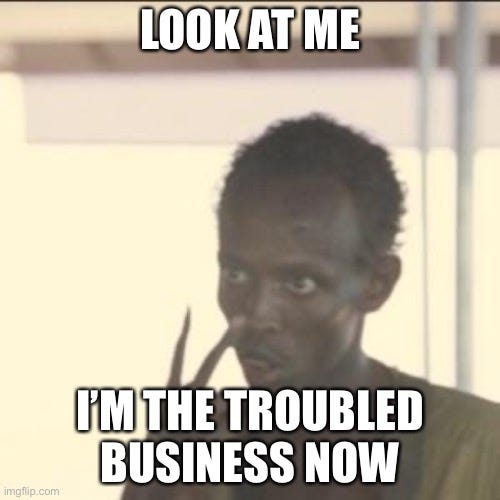In the news this week
The WHO initially called asymptomatic transmission of coronavirus “rare” on Monday, and later walked back the dangerous comments. Asymptomatic transmission is almost certainly the reason COVID-19 is so persistent. If there were no asymptomatic transmission, we could isolate the sick and halt the spread of the virus, and it would have been easily contained months ago. Because it’s impossible to tell who has coronavirus from symptoms alone, countries around the world locked down to slow the spread and likely saved millions of lives in the process.
The WHO’s comments are a slap in the face to public health officials, politicians that implemented lockdowns, and anyone wearing masks for the benefit of others. The World Health Organization still only recommends wearing a mask if you are over 60 or have underlying conditions. Given that masks mostly protect others and not the wearer, and many cases occur in younger people that never show symptoms, this guidance could easily do more harm than good. The WHO seems to prefer waiting around for clear evidence in either direction before giving guidance, which is dangerous and will cost lives. I don’t even want to consider how much death coronavirus would’ve caused if we had waited for irrefutable proof of asymptomatic transmission to take action. Sometimes tough decisions must be made without knowing the full scope of this illness, something all other public health officials seem to understand except the WHO.
Martin Gugino, an elderly man who joined the protests against police violence, is still recovering from injuries sustained when he was shoved to the ground by two police officers. Shoving an elderly man to the ground, resulting in blood pouring from his head, surely looks bad for police, right? That is...unless he’s a secret Antifa provocateur! After realizing this clearly made police look like the baddies (as if they didn’t already), Trump tried to flip the script on Twitter by pushing an unfounded conspiracy theory that the elderly activist was actually an evil Antifa agent. Trump threw out wild accusations that he “fell harder than he was pushed,” and that Gugino, “[appeared] to scan police communications in order to black out the equipment.” He ended his brief tirade with a simple question: “Could be a set up?”
How wild would it be to wake up in the hospital with a serious head injury, caused by the police for protesting police violence, to see that the president of the United States is going off on Twitter accusing you of being some sort of evil secret agent? Fortunately the officers are facing charges, but the president continues to escape justice.
New Zealand ended their lockdown and lifted all restrictions, declaring the country “virus-free.” Their borders still remained closed because, well, not everyone is taking this as seriously as New Zealand, but there are no more limits within the country. New Zealand has not reported any new cases of the virus for over two weeks, and social distancing and limits on public gatherings are no longer required. I say we strike a deal with New Zealand to send over all of our sports teams so Americans will no longer be forced to gamble on bankrupt car rental companies as a form of entertainment.
The state of Georgia attempted to vote on Tuesday, and some Georgians were reportedly able to cast ballots. The voting system in Georgia suffered a “spectacular collapse” last week, with absentee ballots that never got delivered and voters standing in line for hours to cast a ballot. This is actually shocking, because the governor of Georgia was formerly the Secretary of State and oversaw all elections, so you’d think electing the voting guy to the highest office in the state would make voting easier. It’s almost as if one political party realizes they’ll lose if more people vote (not my words, those are the words of the president), and is doing everything it can to suppress the vote. I’m probably just naïve, but if the only way you can get elected is by making sure a lot of people don’t vote, maybe you shouldn’t run for office in the first place.
Headline of the Week: ‘We feel insulted’: French police protest against chokehold ban
Throughout all of the protests, has anyone, anyone, thought about the poor police officers that won’t be able to choke out citizens anymore? First it’s chokeholds, next it’s tear gas and rubber bullets, eventually what will they have left?
Creating a police force that’s limited in its use of violence against citizens might accidentally attract more non-violent police officers that care about serving their community and making the world a better place. Boy, what a nightmare that would be. Imagine the chaos that would ensue if Black people knew they could accidentally use a $20 bill that may or may not be counterfeit and escape out of it alive, or sleep in their own beds without worrying about cops breaking down the wrong door and shooting them dead.
Recommended Reading: The Looming Bank Collapse
If you enjoy reading about the inner workings of the financial world, you’ll really enjoy the article above. If you don’t, I’ll do my best to explain it in a way anyone can understand below.
You’re probably familiar with the financial crisis of 2008, and know that it had something to do with mortgages, but don’t know exactly what happened.
In short, banks were greedy and wanted to make more money. They failed and took the rest of the economy down with them. In addition to lending money to Americans to buy homes, the big banks decided to bet that Americans would pay back their mortgages by investing in collateralized debt obligations, or CDOs. It’s a win-win if people pay their mortgage; the bank gets its money back, and they win their bet on the CDOs. If a lot of Americans can’t pay their mortgage, like in 2007, the banks stop getting mortgage payments and they lose their CDO bets. They won a different bet, though: that the federal government would step in and bail them out.
Next time, the big banks might not get so lucky. Bailing out this type of greed again will be a tough sell to most Americans. Banks should have learned their lesson after 2008, but they didn’t.
Don’t worry, banks aren’t investing heavily in CDOs anymore. They’re investing in collateralized loan obligations (or CLOs) now, and surely they aren’t just as risky as CDOs, right?
CLOs are similar to CDOs, except instead of mortgages they bundle together loans made to troubled businesses. In December, the Financial Stability Board estimated that the average exposure to leveraged loans and CLOs for the 30 global systemically important banks was roughly 60% of capital on hand. A couple of midsize banks have CLOs totaling more than 100% of their capital.
Banks are betting that many of these troubled businesses will be able to pay back their loan obligations. They can even afford a good number of defaults, but if these troubled businesses can’t pay back their loans and defaults become widespread, the big banks will become the troubled businesses.

I’m sure it’s fine though, right? I mean what event could possibly cause a bunch of troubled businesses to all shut down within several months of each other? I can’t even think of anything that would cause so many businesses across the country to suffer great financial losses all at the same time. It would take something crazy, like a global pandemic that kills hundreds of thousands of Americans or something, where the entire economy is shut down for months and even when it reopens people aren’t going out and spending like they used to because they’re afraid of catching the virus themselves or bringing it home to older family members.
Those in the financial world call the coronavirus a black swan event. I don’t think that description fits. Our country had years, decades even, to prepare for a pandemic of this scale. We knew it would happen eventually. We had a chance to prepare in January when we received warning from the WHO and China. We knew it was coming. We could have had stricter, nationwide shutdowns instead of the patchwork half-assed response that we got.
Our bed is made, and now we must lie in it. Luckily, vaccines are progressing faster than they ever have, and treatments will inevitably get better as time goes on. Still, though, recovery will be slow. Not everyone will be eager to return to their local businesses, the same businesses that make up these CLOs. If widespread defaults occur, which looks more plausible than ever, big banks will need another bailout to survive. How do you think the American public will respond when they’re told we need to bail out the big banks, again, because they got too greedy, again?
Asking for a bailout of the big banks again might be political suicide. Will whatever political party that is in power when this theoretical collapse occurs be willing to give another handout to an industry that very clearly didn’t learn their lesson? And what happens if they don’t get another bailout? The banks Americans use for credit, to buy daily necessities, to buy homes and cars, will vanish.
It’s impossible to know whether or not this collapse will come to fruition. It seems probable that a large number of troubled businesses will go under, but without knowing exactly how many default and the details of the CLOs held by banks, predicting a collapse is just a guessing game. It’s most certainly worth keeping an eye on, as eventually the greed of the banks will catch up with them. It may not be this year, or the next, but it will happen eventually. When it does, the entire financial system is going to be at risk of collapsing.
Thanks for subscribing to my newsletter! If you’re new, make sure to check out previous posts such as How to Change an Anti-Vaxxer’s Mind, Coronavirus Will Change the World Forever, and How Donald Trump Became President.
If you liked what you read, please consider forwarding it to a friend or family member. If you aren’t subscribed yet, you can subscribe now below.

